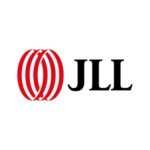Attitudes towards travel are increasingly positive, according to the latest Hotel Guest Survey from BVA BDRC.
The study reported an increase in those who had already booked to travel both domestically and overseas, as restrictions were lifted, with business travel on the increase.
HGS also found that Airbnb was one of the most recognisable brands across the countries surveyed, but that hotel brands remained the favoured booking choice for corporate travellers.
City breaks, rather than beach holidays, were now back in favour for the domestic leisure traveller, while overseas leisure guests were heading for the beach, followed by cities. When booking, going direct to the brand websites and using OTAs both gained ground in terms of value perception, while review sites fell.
James Bland, the director, of BVA BDRC, said: “The past few years have seen travel plans subject to government restrictions as a result of the pandemic, then, in the UK, border issues provoked by Brexit.
“It has been a frustrating time for travel, but, as friction eases, so will the volume of travellers. Our study shows that, particularly when on city breaks at home or abroad, this means a stay in a hotel. With inflation continuing to rise, the value will be a motivating factor.”
Looking at the health of brands across the survey, Airbnb was very popular in most of the categories, but there was also strong local weighting favouring domestic brands such as NH in Spain, Ibis in France and Premier Inn in the UK.
In the economy segment, Ibis remained one of the most recognised brands, particularly in European countries, with Novotel and NH strong in the mid-market segment. Hilton and Melia found favour in the upper full-service segments, with Four Seasons, InterContinental and Sofitel popular in luxury.
Looking at how the brands were viewed, Hampton by Hilton was strong on comfort and design, while Holiday Inn Express was recognised as being strong on ESG. There was a greater spread on the brands in the mid-market, recognising the disparate state of the segment, but Best Western was strong on general perceptions.
In the upper full-service segment CitizenM and Hoxton were both popular, illustrating the growing popularity of lifestyle. For luxury, Waldorf Astoria and Ritz Carlton were both well recognised across the segment, while Westin was noted for its ESG policies.
There was also a strong awareness of the master brand, or brand family, over the individual brands in the group’s portfolios. Despite being a smaller group than global leader Marriott International, the Hilton stable had more brand awareness.
The master brands have continued to add to their stable, with a growing focus on collection brands, which allow access to the groups’ distribution platform, but with fewer, if any, brand standards.
Bland said: “There is rarely a week which passes when one of the large global operators does not launch a new brand, allowing them to offer owners and customers more options.
“While some of the smaller brands don’t make it into double figures, this does not seem to be confusing the consumer. On the contrary, Hilton’s addition of ‘by Hilton’ to its brands means that the parent group is all the more strengthened in the mind of the guest, giving more weight to the company’s loyalty programme, which binds these flags together.”















